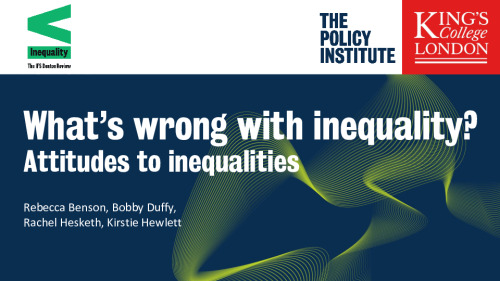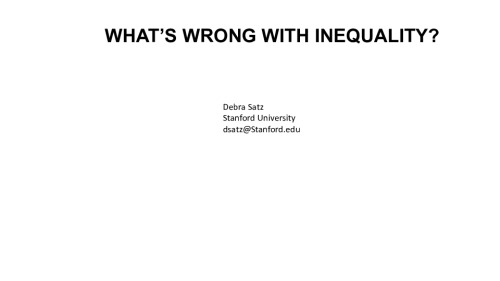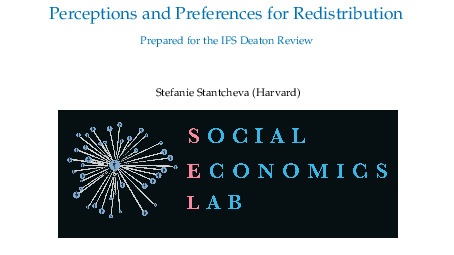When should inequalities in society be of ethical concern, and a target of public policy, and why? Which inequalities do people find most and least worrisome in the UK, and which do people relate to most closely from their personal experience? How do people differ in the way they think about the fairness of inequality and the role of government in tackling it? To what extent do people disagree about the facts of how substantial inequalities are and the reasons that they have arisen? Can their minds be changed by presenting them with new information?
These were among the questions discussed while presenting new work undertaken for the ground-breaking IFS Deaton Review of Inequalities, funded by the Nuffield Foundation. We examine people’s attitudes towards inequalities and how these fit with different traditions of philosophical thought on the topic. These were the first of many detailed studies from the Review to be released over the coming months.
This event were chaired by Paul Johnson, IFS Director, and featured an introduction by Tim Gardam, Chief Executive of the Nuffield Foundation, followed by three presentations.













